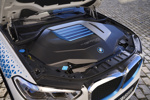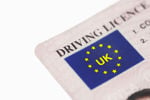Celebrations or commiserations following the late kick-off at 7.45pm on Sunday could mean employees drink enough to still be over the limit when they get in their cars on Monday morning.
Although drivers may dismiss the chance of drinking enough to put them over the limit, safety experts have proved that a relatively small amount of alcohol can put their licence at risk.
Research suggests that as little as four pints or four large glasses of wine the night before could still be in a driver's system the next morning. The earlier drivers get on the road, the greater the risk.
Drink drive expert Roger Singer said: 'With most matches starting early in the evening there is a likelihood that we may drink over a longer period of time, therefore the alcohol consumed during the previous evening may still be around the next morning.'
Statistics show that of the 90,000 drivers convicted of drink-driving every year, 17% are on their way to work or are driving for work purposes.
Fleet executives could find themselves in the dock if one of their drivers is involved in an accident the morning after a drinking session.
Singer added: 'It doesn't matter if they are in their own vehicle or yours, if the journey purpose is work-related you, the employer, can be deemed responsible for anything that goes wrong. At worst we are talking corporate manslaughter. In liveried vehicles there is the added issue of public perception and negative company image'.
Fleets with a policy of telling drivers not to drink-drive may find it is not enough to cover them should their driver get a drink-drive conviction.
Singer added: 'On its own a policy, however extensive, is not enough. The Government says 'if a company trains and does check-ups on its drivers and then a driver, against the advice given, causes an accident, the company can say it has done all that is reasonable.'
No excuses: answering drink/drive arguments















Login to comment
Comments
No comments have been made yet.